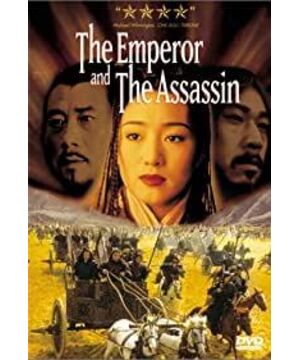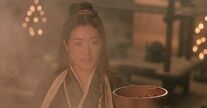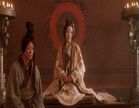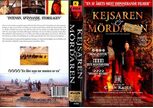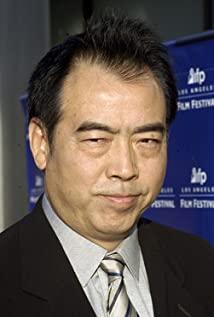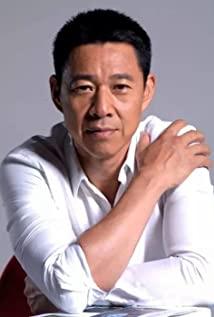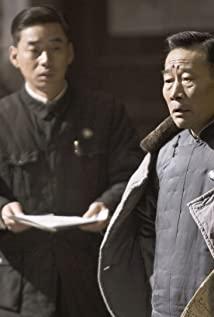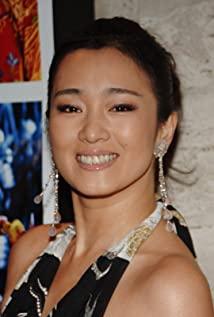Sima Qian’s "Historical Records-Assassin Biography" mainly praised the four qualities of "benevolence", "righteousness", "loyalty" and "courage". The characters are all unusually brave and fierce. Simple, but if you savour it carefully, you will definitely feel the assassin's decisive and decisive courage during the lightning-like assassination process. This is the "benevolent" morality advocated by Confucius. The rich and the poor, the mighty and the vicissitudes, the advantage and the reputation are not intimidating and moving their hearts. Using Mencius' words, these assassins cultivated the most powerful and righteous, so they were able to give up their lives for righteousness.
Among them, Jing Ke appeared in the image of a gentleman, both civil and military ("gentle, gentleman, then gentleman"), and used swordsmanship to talk about the princes. However, in the later period of the Warring States period, the princes collapsed and the princes did not speak rituals, nor did they understand the gentleman in the process of comparing swords. Although the dispute was repeatedly reprimanded, Jing Ke always left silently. This is precisely the "self-denial and restoration of rituals" in the gentleman's self-cultivation and "don't see, listen to, speak, and move." Later, the hermit of Yan State. Gou Tu Gao Jianli became friends with him, drinking wine as a song, weeping with each other, like no one else. It can be seen that Jing Ke's aspirations have not been paid. The hermit Tian Guang took in Jing Ke as a guest, praising him for being indifferent, "a brave man, angry and not showing off".
When the Prince Dan of the Kingdom of Yan decided to assassinate Qin, Tian Guang agitated Jing Ke with death and let him repay the favor. Prince Dan also treated Jing Ke with the gift of the king, "for too strong tools, foreign objects enter, the beauty of the rider will do whatever Jing Ke wants." Specifically, it is the liver of the Maxima, the hand of the beauty, even if it is the star in the sky, Jing Ke wants it. Take them all off. Prior to this, the crimes of the Kingdom of Qin put Fan Yuqi in desperation. Although Tai Fu firmly opposed, saying that taking in Fan Yuqi would be "resentment and help the disaster" and would speed up the demise of Yan Kingdom, but Prince Dan still couldn't bear to take Fan Yu. Expect. Mencius said that the king’s “unbearable” is close to kindness, so Jing Ke said that “the prince met Ke is very thick” and decided to assassinate Qin, and Fan Yuqi also voluntarily cut off his head to help Jing Ke. Etiquette, ministers are loyal to the king."
Jing Ke set off to assassinate Qin, and Prince Dan and his officials saw off in white clothes. When Gao Jian left Jianzhu, Jing Ke decided to give up his life and take righteousness. He sang "The wind is depressed and the water is cold, and the strong man goes and never returns." This is where the high mountains and running water between the hermits meet the friend, the sword is dead, and the Qinhui is very lonely. After Jing Ke failed, Qin destroyed the Kingdom of Yan, Gao Jianli used lead to set up the center, and attacked Qin Shihuang, but he failed, was punished and killed, and died as a confidant.
Chen Kaige's "Assassin" has changed the "Assassin's Biography". It mainly talks about "love" and "confusion." Qin Wang Yingzheng was never confused to confused, and was confused by power and life experience. He was determined to unite six. The first emperor of the country became a tyrant who "has little kindness but a tiger and a wolf heart, and a will light cannibalism"; while Jing Ke and Zhao Nv went from bewildered to not confused, and strengthened the determination of Assassin Qin. What is prominent is Confucius's "the one who knows is not confused, the benevolent" Don’t worry, the brave are not afraid.” Confucius’s thinking is not only about learning and excellence, but also about the self-denial of self-denial and ritual for benevolence. Row. Only by knowing the shame and then being courageous, with a sense of shame, can we do something and not do something.
In the movie, Jing Ke appeared as an assassin. After completing the mission, he was shocked by the blind girl’s filial piety. He was confused and ashamed of what he had done. He gave up his identity as an assassin, concealed his name in Yan State, and made straw sandals to practice himself. , As an atonement. After being seriously injured, Gao Jianli was cured but refused to eat. Gao Jianli said that he "neither wanted to live nor die". It can be seen that he "loves for life, evil for death, desires for life, and desires for death." , It's confused."
Zhao Nv loves winning politics because the winning politicians unify the six countries in order to end the war, just like Confucius commented that Guan Zhong is "like his benevolence", "dominate the princes and conquer the world, and the people will now be bestowed by him." This is also a great benevolence. Righteousness, Zhao Nv loves the overlord, and what she loves is the unobtrusiveness of Yingzheng, regardless of the trivial matter, and the benevolence of the husband is not the benevolence. However, the coup d’état made Yingzheng know that he was the illegitimate son of Prime Minister Lu Buwei and his mother. This great change made Yingzheng unable to guard his "benevolence", killing his father and mother, swallowing six countries, and pitting (burying) 400,000 Zhao Jun, because of him. The secret made me feel terrified. Yingzheng's killing of father and mother is not filial piety. Zhao Jun violated his promise to Zhao's daughter (love the people, benevolent governance) by cheating 400,000 yuan, which can be described as unbelief. Unbelief and shamelessness shows that he has no intention to change. This is "confusion."
Zhao Nu did not love the tyrant Ying Zheng, so she helped the assassin Jing Ke regain her desire to "live". Confucius talked about "Unknown life, how can you know death?" Because death and life are one, life and life are confused, and death will be at a loss. "Not confused" means knowing oneself, "knowing the destiny" means knowing what you can and cannot do. Zhao Nu has "love" for Jing Ke, while Prince Dan and Fan Yuqi have "little" and "righteousness" to Jing Ke, let Jing Ke Re-recognize yourself, know the destiny without confusion, only then can you know what you can't do, and be determined to give up your life for righteousness.
The end of the film is when Ying Zheng faces Jing Ke, who sees death as home. Jing Ke laughed from beginning to end, because he not only saw Ying Zheng’s cowardice, but also because of his own righteous deeds of Nirvana; Ying Zheng deceived the world to not succumb to "power", Jing Ke’s view of death as a reflection of Ying Zheng’s Cowardly, so repeatedly asking "Why are you killing me" and "Why are you laughing", it can be said to be extremely "confused", even to death.
View more about The Emperor and the Assassin reviews


